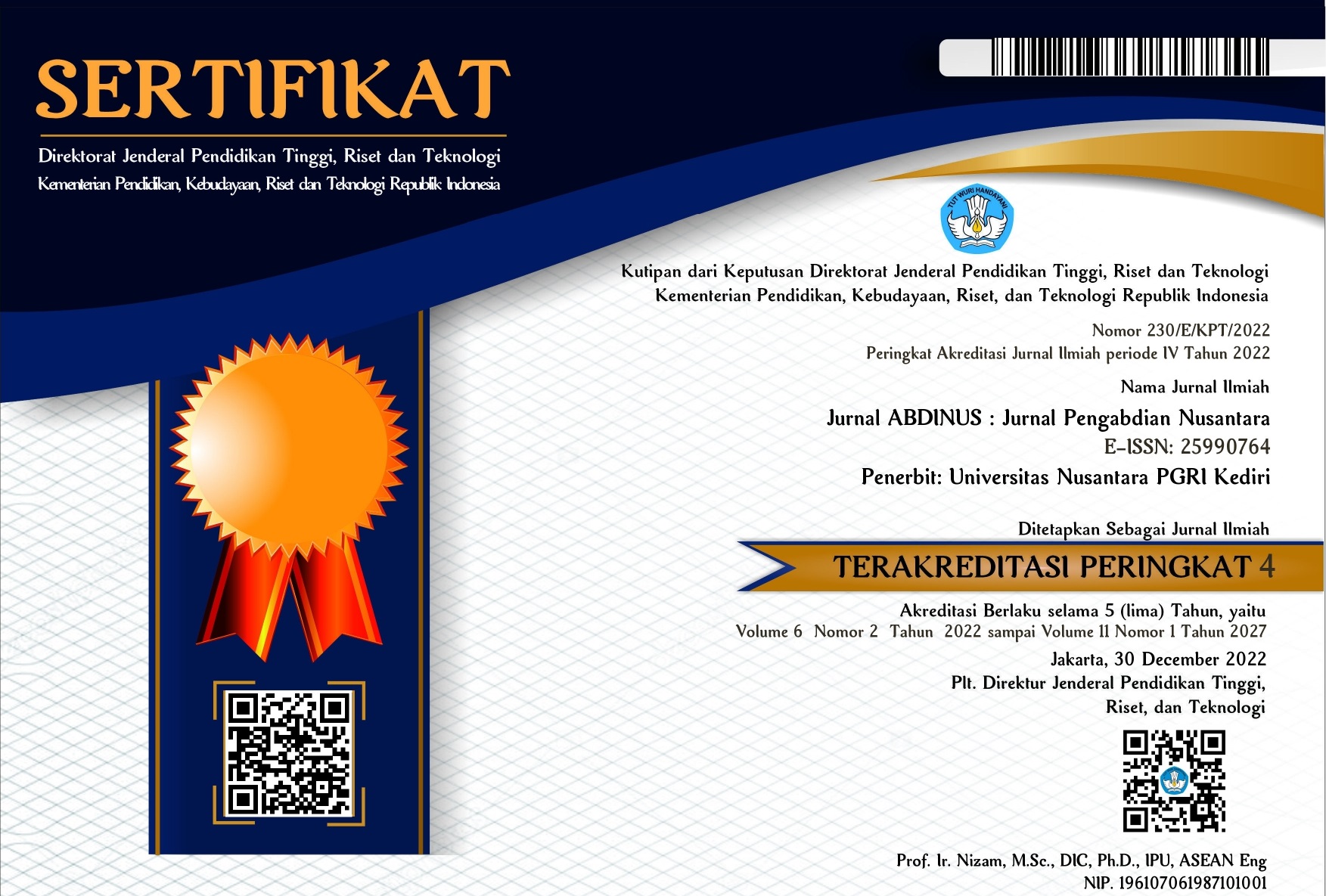Implementasi SWOT dalam Penentuan Program Pendampingkan Pemberdayaan UKM Produksi Pangan Rumah Tangga
DOI:
https://doi.org/10.29407/ja.v3i1.13110Keywords:
SWOT Analysis, Abdimas, Kemamanan Pangan, Ijin Edar BPOM.Abstract
The government encourages community elements to be economically independent. The encouragement and support was realized with facilities for the community to establish UKM. Through SMEs, the community is expected to be able to empower all the resources they have to achieve prosperity. SMEs in the food sector are very high growth, SME capacity development needs to be improved, and food security issues need to be addressed. Fulfillment of safe and quality food is the basic right of every human being, including food produced by the Household Food Industry. CV. Panca Boga Langgeng is our abdimas partner that produces household-scale food products, which have the desire to increase its business capacity, the obstacles faced are market share only limited to family, friends and circles around the place of business. Business owners cannot produce on a larger scale and market widely because they do not have legality. To understand the problems and potential of our partner SMEs, we use the SWOT method, the work system of the SWOT method in formulating strategic solutions is outlined in the matrix, internal and external aspects are used as the basis for determining strategies or efforts that can be achieved so that business objectives can be achieved. The results of community service activities include: the partner has a NPWP, a business permit and has received a registration number for the management of BPOM's distribution permit.
Downloads
References
Gürel, E., & Tat, M. (2017). SWOT Analysis: A Theoretical Review. Journal of International Social Research, 10(51).
Humphrey, A. S. (2005). SWOT analysis. Long Range Planning, 30, 46–52.
Komala, I. S., Widajanti, L., & Pangestuti, D. R. (2017). Cara Produksi Pangan Yang Baik Untuk Industri Rumah
Tangga (Cppb-Irt) Perusahaan Tahu Putih “Sl” Kabupaten Semarang Tahun 2017. Jurnal Kesehatan Masyarakat (e-Journal), 5(4), 690–697.
Sekretariat Negara Indonesia. (2004). Peraturan Pemerintah No. 28 Tahun 2004 tentang Keamanan Mutu dan Gizi Pangan. Sekretariat Negara. Jakarta.
Sekretariat Negara Indonesia. (2012). UU No. 18 Tahun 2012 tentang Pangan. Sekretariat Negara. Jakarta.















